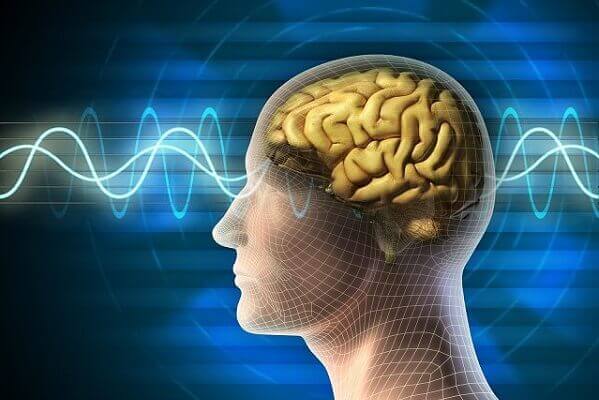
After a traumatic brain injury (TBI), a person could have an increased risk of suffering depression. Some studies even suggest that TBIs increase that risk by two to five percent. Depression is just one of many symptoms that can occur following a TBI, and sometimes the depression remains long after the other symptoms have gone away.
Depression occurs when a person has an unresolvable feeling of loss, sadness, or even hopelessness. It does not go away, and it is not a “phase,” but something that they deal with continuously each day. Sometimes, it can become worse, while other times, the feeling is steady. Depression often makes sufferers lose interest in the things they used to enjoy, and it can be devastating on loved ones.
What Are the Symptoms of Depression?
Depression is not a quick sudden change in someone’s mood, and it may come on gradually and worsen. While it is normal to feel sadness after an injury, especially one that results in serious injuries, when someone is still suffering those feelings weeks later, they may have depression.
Some common symptoms of depression include:
- Feeling hopeless, down, or sad;
- A loss of interest in usual activities;
- Loss of pleasure in things that a person used to enjoy;
- Feeling worthless or guilty;
- Feeling like a failure;
- Sleep and attitude changes;
- Inability to concentrate;
- Withdrawing from family, friends, and even work relationships;
- Excessive tiredness;
- Lack of energy – even with proper sleep; and
- Thoughts of suicide.
The prolonged feelings and symptoms listed above should not be ignored. When depression starts to take over a person’s life, it is imperative that they seek medical treatment.
The Chances of Suffering Depression Post-TBI Injury
Depression is natural after any traumatic injury. However, it is very common when a person suffers a TBI. During the first year of recovery, a person with a serious TBI is likely to encounter bouts of depression or long-term depressive episodes.
In other cases, a person may suffer from anxiety instead of depression.
Why a TBI Increases a Person’s Risk for Suffering Depression
Suffering an injury alone is not the only reason a person might feel depressed after a TBI. Instead, there are numerous causes of depression in TBI victims, including:
- Dealing with physical changes that occur in the brain after a serious injury. The brain is delicate, and when the areas that control emotion are damaged in a TBI, they can lead to feelings of depression. Also, when the brain’s natural balance of chemicals is disrupted after an injury, these may alter a person’s emotional health.
- Occurring as a natural emotional response to a serious injury. When a person has to adjust temporarily or permanently to a disability from their injury, it can lead to depression. It may change their role in society and even in their family. For example, a parent may no longer be able to care for their children, interact with loved ones, or even provide for their family – causing feelings of hopelessness.
- Factors that have nothing to do with the injury but are sparked by the injury. Some individuals are at a higher risk for depression due to genetics, family history, or other issues that were present before the injury. The injury then acts as a catalyst, adding to what was already there and forming depression.
How Is TBI-Induced Depression Treated?
Depression resulting from a TBI has various treatments, and the type of treatment depends on the cause of the depression. When it is a chemical imbalance, medications may work. When it is coping with the permanent or temporary disabilities of a TBI, a person may need therapy, medications, and counseling to learn to cope emotionally with the changes in their life.
Some common treatments for TBI-created depression include:
- The Use of Medications: Typically, a person with depression is prescribed antidepressants, such as SSRIs (selective serotonin reuptake inhibitors). These are not addictive, and they help control the chemical imbalances causing depression. Antidepressants may also help improve energy levels, sleep, and feelings of anxiety. It can help a person recover faster, especially if depression is affecting their ability to do physical therapy or even eat. These medications do not work overnight; instead, it may take a few weeks for a person to feel the full effects as they work to correct any chemical imbalances present.
- Cognitive Behavioral Therapy: A person can change how they feel through therapy, especially when they use CBT therapy. CBT helps a person adapt emotionally to changes, and it can especially help victims suffering from a TBI. This is because it helps them adapt how they feel, think, and even remember trauma.
- Behavioral Activation Therapy: Those with depression that is so severe it reduces activity may benefit from this type of therapy. A counselor helps establish a routine, which improves activity during the day and eventually leads to more energy. It slowly adds activities back, and activities are controlled by the counselor overseeing treatment.
- Acupuncture: Sometimes, TBI victims benefit from alternative treatments like acupuncture. Alternative medicine should never be used in place of traditional medicine, and it should only be explored when prescribed by a physician.
Seeking Compensation for Depression Following a TBI
Anyone who suffers a TBI could receive compensation, not only for the depression, but also for all of the changes that person experiences and the losses because of their injury. A TBI is emotionally and financially devastating. It alters a person’s life permanently, and when they did not cause that injury, they should receive financial compensation to help them recover as much as possible.
If you or a loved one has suffered a TBI due to someone’s reckless, negligent, or purposeful acts, you may be entitled to compensation for medical costs, lost wages, pain and suffering, and more.
To explore those options, you need a team of attorneys that understand how TBI injuries work, and who are ready to fight against insurance companies to get the compensation you deserve.
Contact the attorneys at Brett McCandlis Brown & Conner, PLLC, by calling 206-488-1462 or scheduling a free case evaluation online.
Explore and know your legal options. Find a knowledgeable team who understand how TBI injuries work. Call us today and learn how we can help you!


